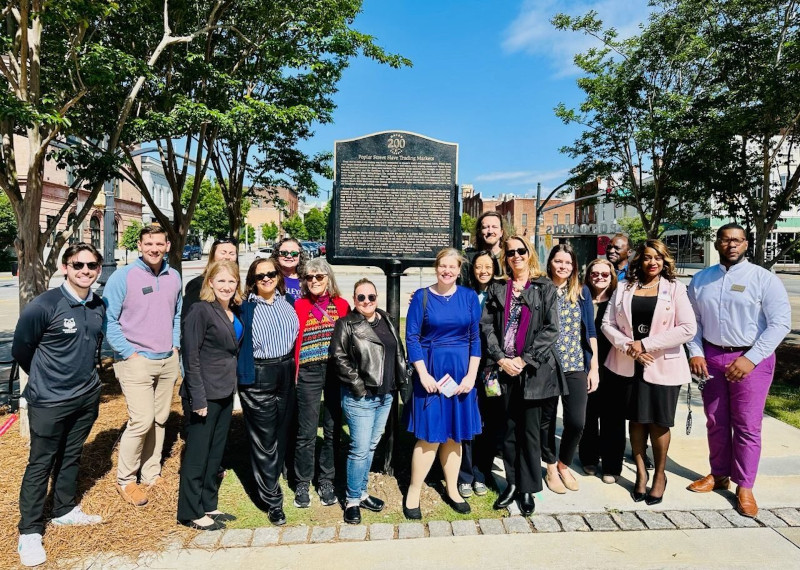
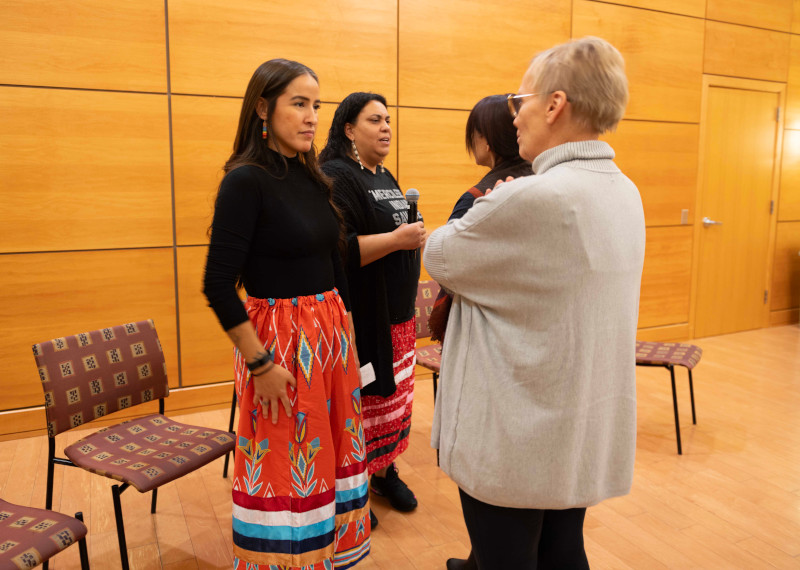
How should reparations for past and present racial injustice be introduced, and what role can colleges and universities play in shaping proposals within their communities? These are the urgent questions five CIC colleges have been helping to answer over the past three years as partners in Crafting Democratic Futures (CDF), an initiative developed by the Center for Social Solutions at the University of Michigan and funded by the Mellon Foundation as part of its Just Futures program. The CDF initiative is led by Earl Lewis, a long-time scholar of reparations and the founding director of the Center for Social Solutions and the Thomas C. Holt Distinguished University Professor of History, Afroamerican and African Studies, and Public Policy. The project brought together nine colleges and universities from across the country and one media partner. Humanities scholars at the institutions collaborated with organizations and leaders within their communities to design reparations plans informed by careful, locally informed research into the histories and legacies of racism.
Among the goals CIC hoped to achieve through participation in the project was to provide to its member colleges and universities a variety of models for how independent higher education institutions could partner with organizations and activists in their communities to produce actionable proposals for reparations. As the project outcomes demonstrate, the deep research and institutional resources contributed by faculty members and students, combined with the practical experience and understanding of racial injustice shared by community members and advocates, creates a powerful platform for change and the difficult work of repair.
In 2021, Concordia College (MN), Connecticut College, Wesleyan College (GA), and Wofford College (SC) received subgrants through CIC to fund projects of exploration and repair led by teams of faculty members and community fellows. CIC member Spelman College (GA) was also a CDF partner, along with Carnegie Mellon University (PA), the University of Michigan, Emory University (GA), and Rutgers University at Newark (NJ). WQED in Pittsburgh was the media partner. Over the following years, the CIC colleges—leaders and team members alike—demonstrated remarkable creativity, commitment, and persistence as the work progressed and plans took shape. All five have accomplished much, but they recognize that the work has only begun, and they are eager to sustain it over the coming years.
All the projects undertaken by these colleges extended or made use of work that had been underway for some time. Connecticut College professors had long been collecting oral histories in New London; Wesleyan and Wofford colleges had been examining their own histories; and Concordia College had been engaged for some time with tribal history and the issues faced by Native Americans in the Fargo, North Dakota, and Moorhead, Minnesota, region. Spelman College had forged a relationship with the Quarterman-Keller Fund, which seeks to narrow the racial wealth gap and promote equity through the activism of descendants of the enslaved.
The grant from CDF gave this work a new burst of energy, sharpened its focus, and enabled closer partnership with community organizations. Each of the teams summarized what they had learned and accomplished at the final convening of the project in Ann Arbor, Michigan, on October 31, 2023:
Concordia College (Moorhead, MN)
The CDF team at Concordia College has developed a project that focuses on educating people in the Fargo/Moorhead area about the intergenerational traumas faced by Indigenous people as a result of mandatory attendance at residential boarding schools. The team has focused on three areas: social and human services, education, and the criminal justice system. Working with their Community Fellow Ricky White, CEO of First Nations Consultants, the team hosted trainings and symposia for directors, staff, board members, and officers of organizations in each of these three service areas to help them understand how the effects of intergenerational trauma impact Indigenous peoples’ interactions with their systems. The goal of the project is to create awareness of the lived experiences of Native Americans and Indigenous communities in the face of historical erasure and ongoing injustice.
Concordia’s project is highlighted in a special video extra of the WQED documentary, The Cost of Inheritance.
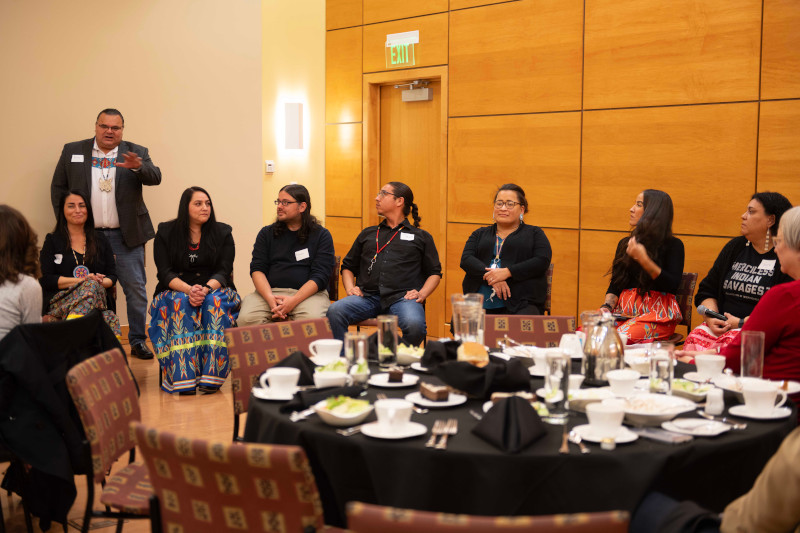
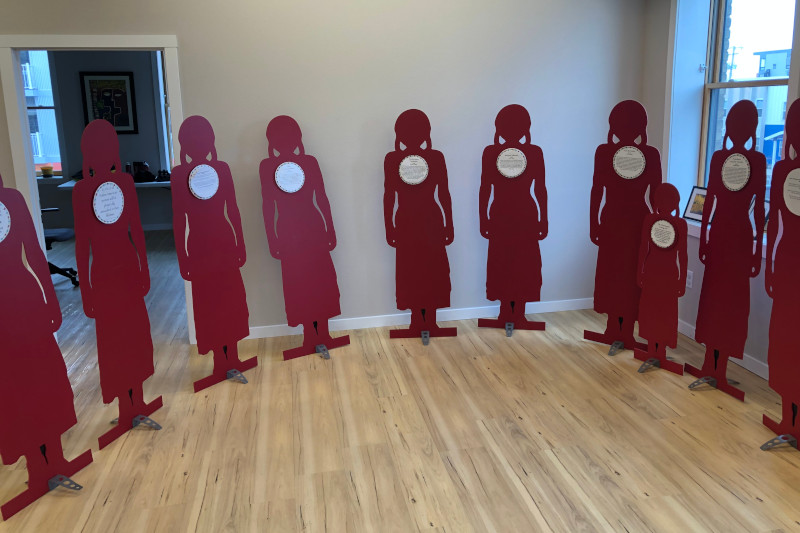
Connecticut College (New London, CT)
The CDF team at Connecticut College focused on using participatory research methods to develop community-based reparative solutions to historic accounts of racism by identifying problems and envisioning solutions that reflect lived experience. The team held programming over three summers that focused on sharing experiences, forging new community connections, and repairing the relationship between the College and the New London community. In Summer 2021, the team hosted a series of workshops with New London area high school students, through which the students were trained in narrative research methods to collect stories from New London elders about their experiences with racism and housing discrimination in New London. In 2022, the team worked with a Brooklyn-based theater organization and stage actors to help students and elders bring their stories to life through performance, including spoken word, dance, skits, and video. In 2023, the team brought high school students to the Connecticut College campus to help them envision their futures beyond high school. This included workshops focused on ensuring the students have a solid foundation for beginning a college education and presenting a diverse range of career opportunities outside of college. Through these programs, the Connecticut College team is invested in maintaining a sustained connection with community members. Plans are now underway to continue the “Horizons Beyond High School” program this summer for New London high school students, supported by New London High School, Connecticut College, Mitchell College (CT), and New London community organizations and employers.
A grant from the Community Foundation of Eastern Connecticut will fund an additional three years of this program, including wrap-around school year programming that will continue to support the cohort formed in the summer.
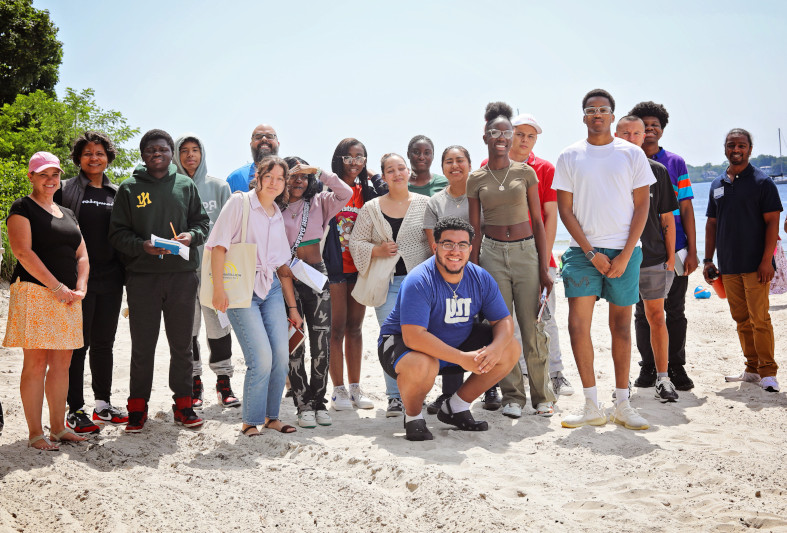
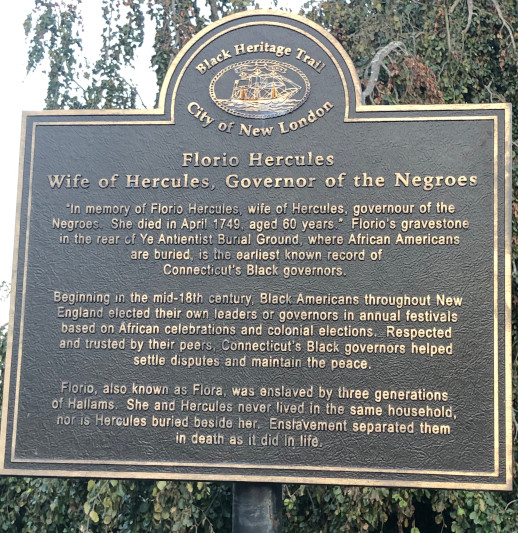
Spelman College (Atlanta, GA)
The CDF team at Spelman College collaborated with Sara Eisner and Randy Quarterman of the Quarterman-Keller Foundation to empower a broad network of reparations activists and scholars on Spelman’s campus and in the Savannah-Port Wentworth region in Georgia. Housed within the Social Justice Fellows program on Spelman’s campus, the CDF project focused on training students to collect oral histories from families in the region. The project also created opportunities for students to strengthen their intellectual understandings of reparations through the development of a course about reparations in the U.S. and worldwide taught by Kathy Powers and through opportunities to engage with scholarship about reparations in a symposium and book discussions. Students working with the project were then given the opportunity to travel to Savannah to engage with a diverse range of community perspectives on the topic of reparations.
Spelman College students and faculty appear with Randy Quarterman and Sara Eisner in the WQED documentary, The Cost of Inheritance.
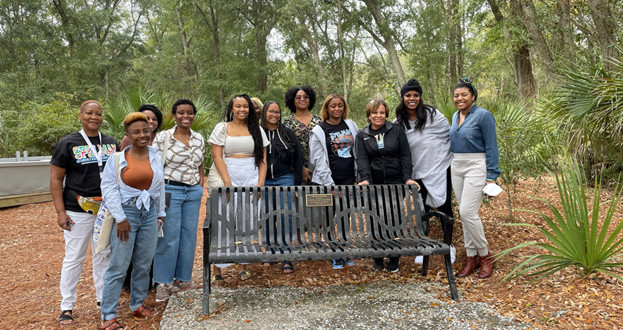
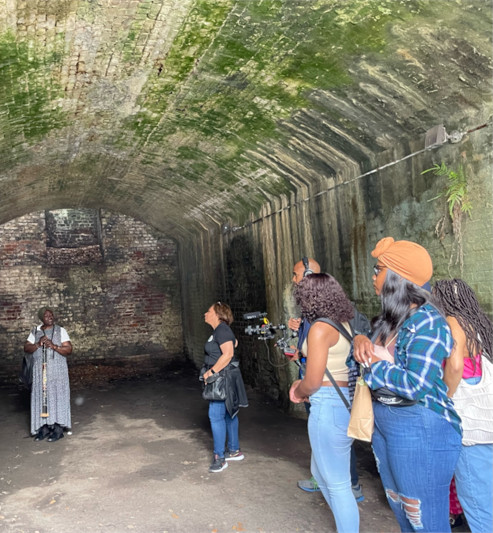
Wesleyan College (Macon, GA)
The CDF team at Wesleyan College has produced a research project that examines the history of the African American experience in Macon, Georgia, with an attention to the College’s own history. As the oldest women’s college in the world, Wesleyan occupies a unique position as an institution originally established to educate wealthy, Southern white women that now boasts a student population primarily composed of students of color. The Wesleyan team has worked to shift narratives on campus and in the larger Macon community to reflect these changes in the school’s profile while also addressing the College’s history as an elite, white institution that historically featured problematic Ku Klux Klan-related iconography. To facilitate these narrative shifts, the team partnered with the Tubman African American Museum in Macon to host community dialogues. The team’s work was guided by three areas of focus: educational changes, inclusive community art, and making visible a more accurate African American history in Macon. Following the model of the Equal Justice Initiative’s Legacy Museum and historic markers in Montgomery, Alabama, one of the notable outcomes of Wesleyan’s work with the Macon community is the creation of the first historic markers to recognize the history of slavery and specific auction sites of the enslaved around the city. To ensure the continuation of the work, the team also established the Lane Center for Social and Racial Equity on Wesleyan’s campus.
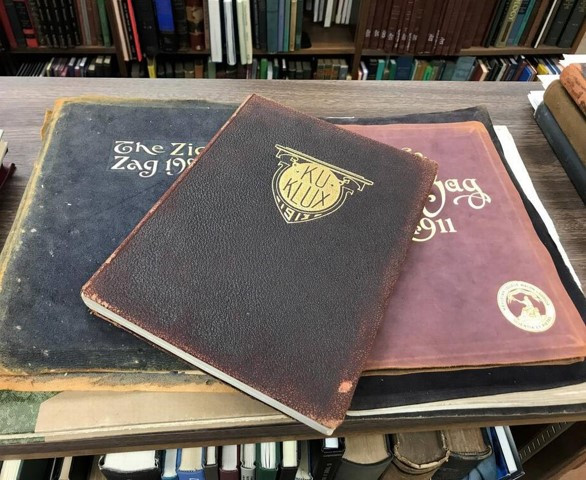
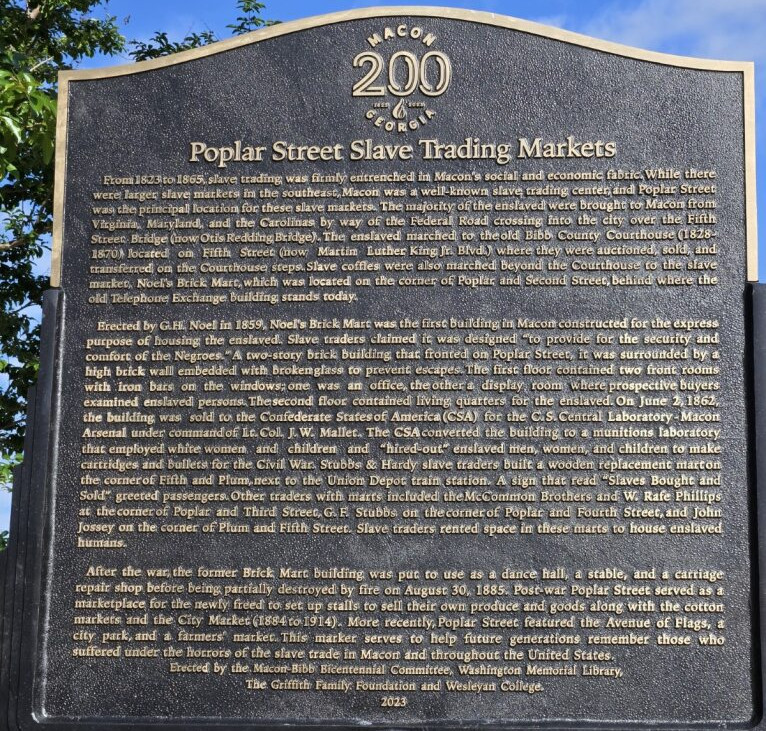
Wofford College (Spartanburg, SC)
The CDF team at Wofford College has developed a project that aims to build repair into their process. Doing this requires confronting the epistemic injustices that occur on college campuses in part through a failure to acknowledge community members as bearers of knowledge. The Wofford team is particularly aware of the complicated dynamic that exists between its institution and the broader Spartanburg community. To counter these injustices, the team developed a project that centers community voices by following their lead. This includes citing the work of community historians and community members as “knowers.” The team also worked with neighborhood groups to publish community narratives that captured the histories, present state, and future reparative visions of residents in various neighborhoods in Spartanburg. The goal of capturing these experiences is to shift the dominant narratives around community concerns that ignore long histories of disenfranchisement and that rely on a donor philanthropy model as a one-time solution to a perceived “flaw” as opposed to addressing systemic harm. The project has also served as an opportunity to provide education about reparations and think about reparative possibilities on the Wofford campus.
Wofford College produced a short video on Spartanburg’s “Back of the College” neighborhood.

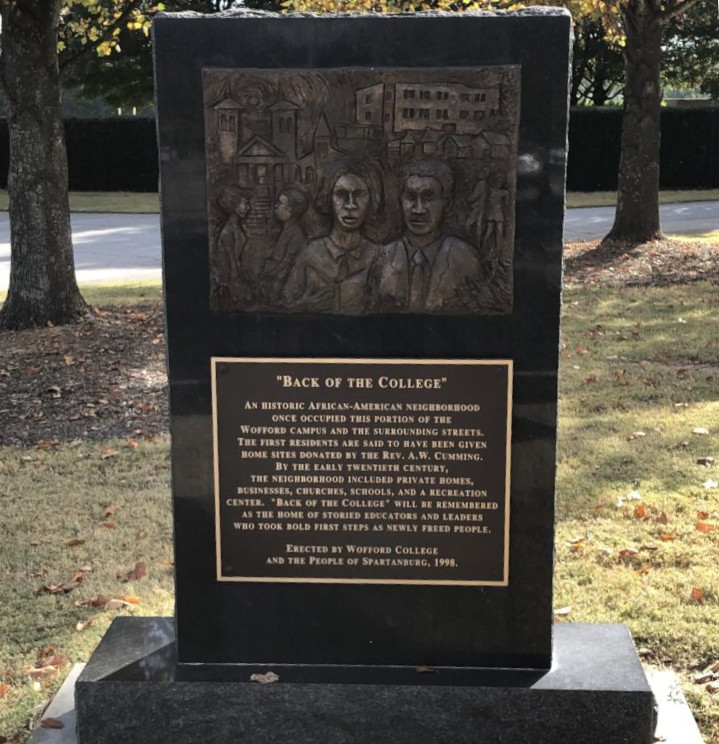
Resources for Crafting Democratic Futures
View The Crafting Democratic Futures website
WQED in Pittsburgh produced a documentary as part of the Crafting Democratic Futures project. The Cost of Inheritance premiered nationally on PBS on January 8, 2024, and worldwide on the World Network on January 15, 2024.


